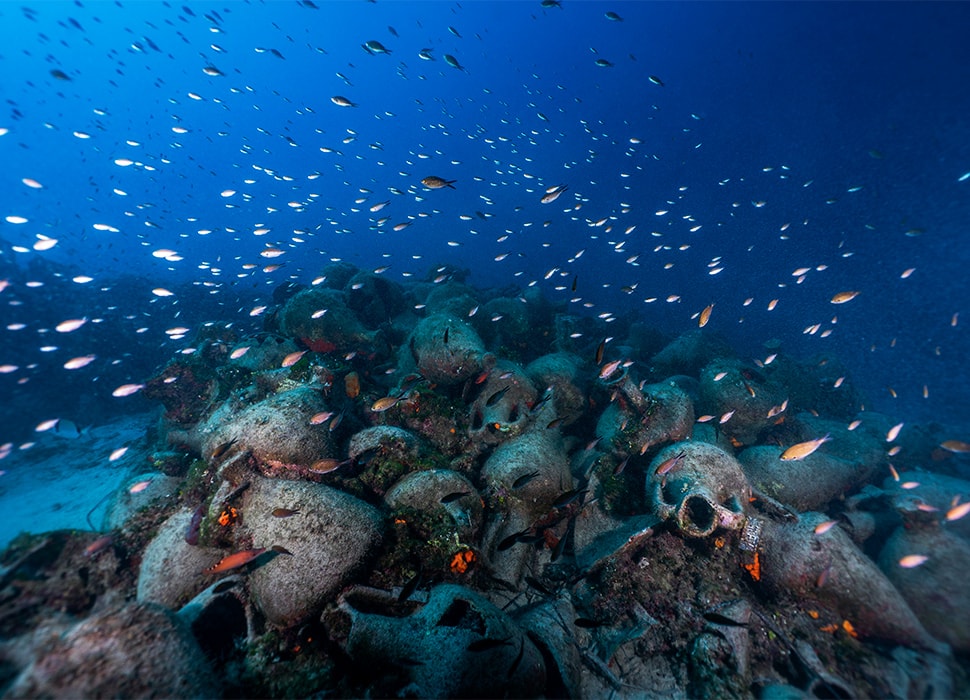Imagine a museum with no queues, no roped-off exhibits, no glass cases and no slouching groups of bored students. And you could never accuse it of being dry…

Way back in the 5th century BC, an Ancient Greek ship called the Peristera sank just off the coast of Alonissos, a sun-dappled island in the Aegean sea. It was carrying around 4,000 amphora – clay jars traditionally used to make and store wine, which have remained on the seabed ever since.
The wreck site has long been of interest to archaeologists. But now, just 2,000 years after the boozy bounty was lost, the Peristera has been declared open to visitors until 3 October. There’s a catch, though: not only will you need to hire an authorised guide, you’ll also need to borrow some scuba gear.

The enormous cargo of wine-filled jars – what a waste – lay undiscovered for hundreds of years until a fisherman came across it in 1985. Lying 95ft (that’s 28m) under the surface of the Aegean’s vivid blue, the boat itself has largely disintegrated – though what’s left has become a fertile environment for aquatic life – but its alcoholic cargo has remained remarkably intact. Just why the Peristera sank has never been ascertained, though presumably drink driving can’t be ruled out.

Deep-diving to the bottom of the sea – even with a licensed and experienced guide – is still a pretty intimidating feat. If you prefer to visit museums without an air tank, the whole thing can be experienced in VR at the Ministry of Culture’s information centre on dry land in Alonissos.
Alonissos is accessible from Volos. Book flights and holidays
Book flights to Volos Book holidays to Volos